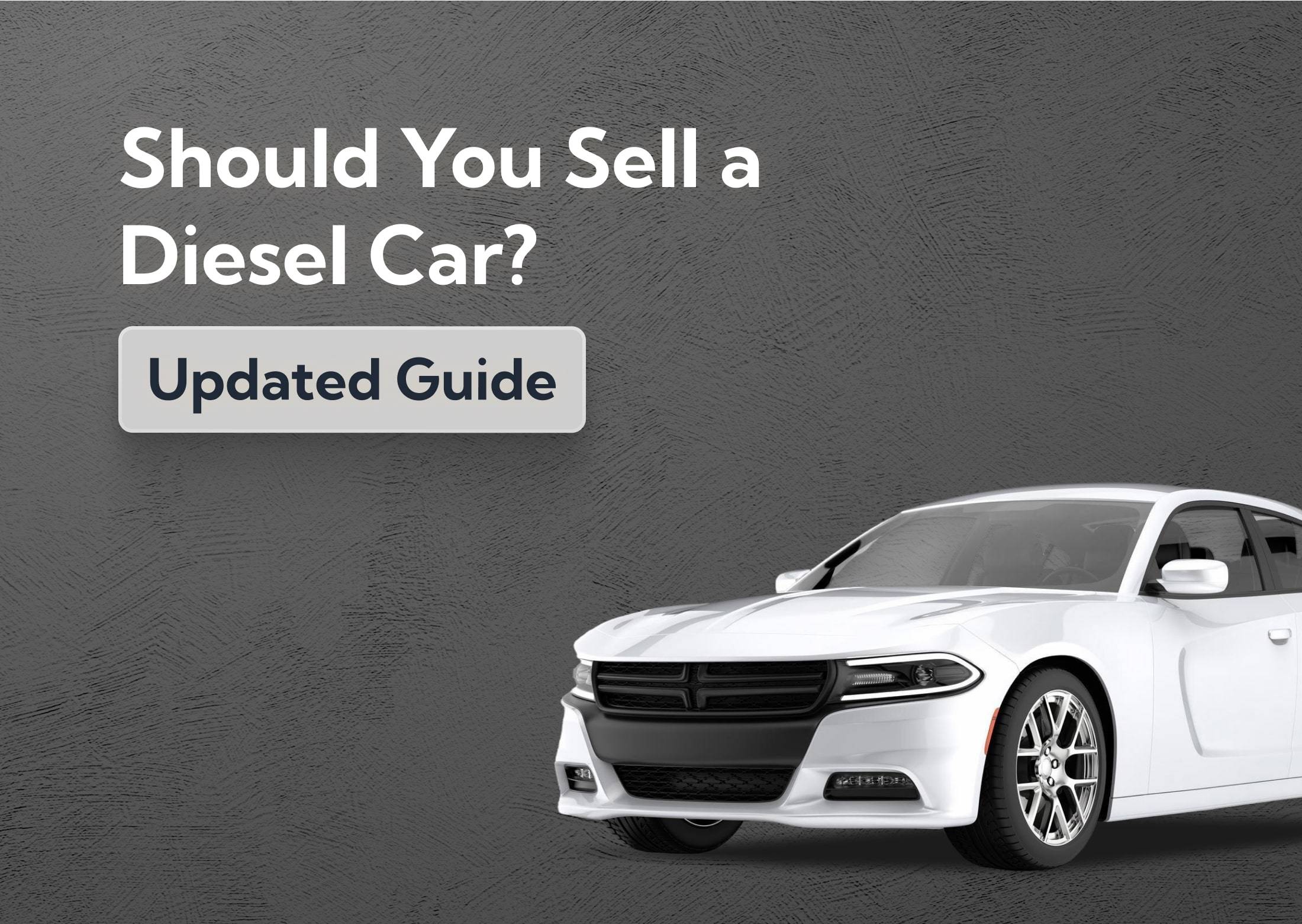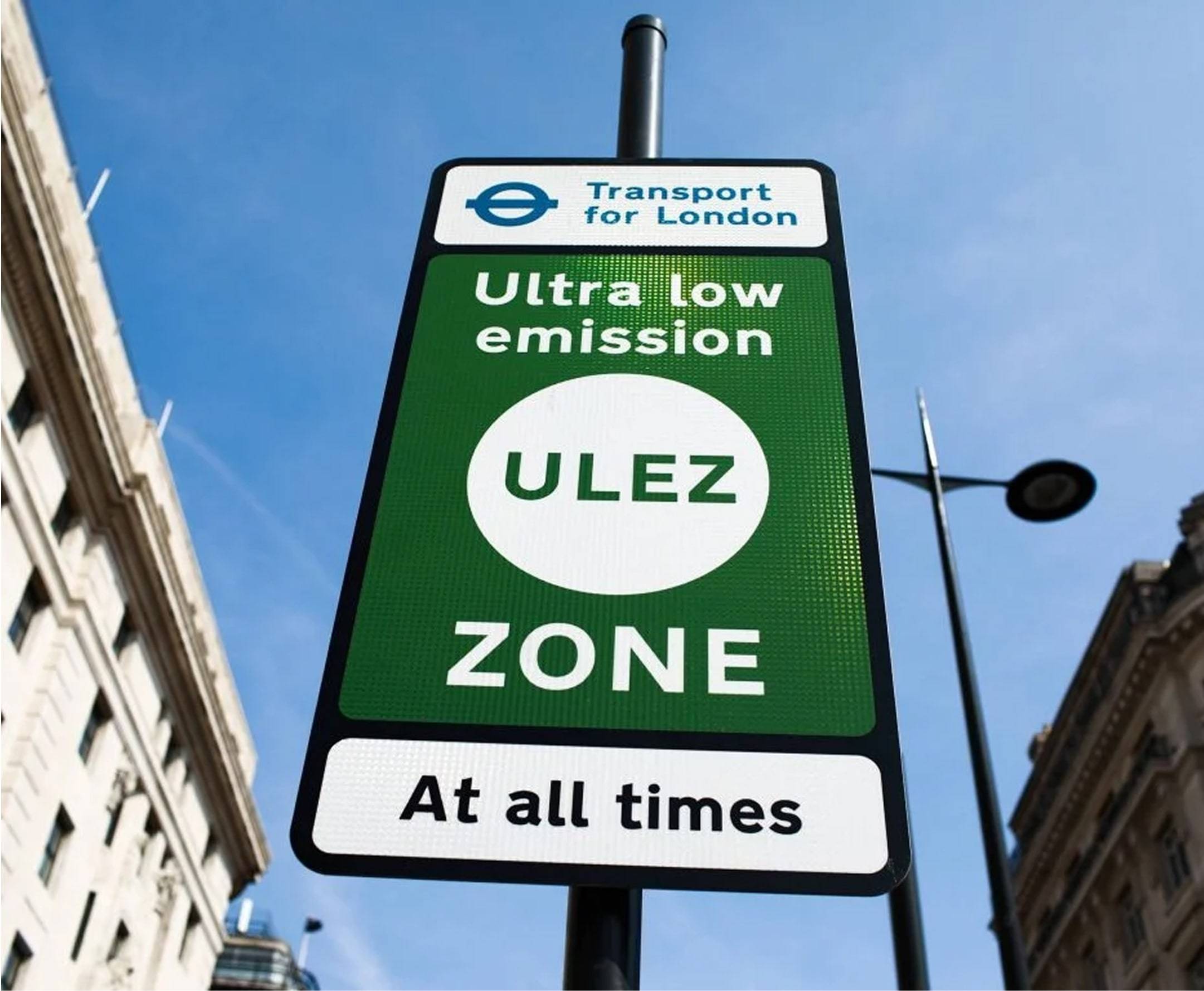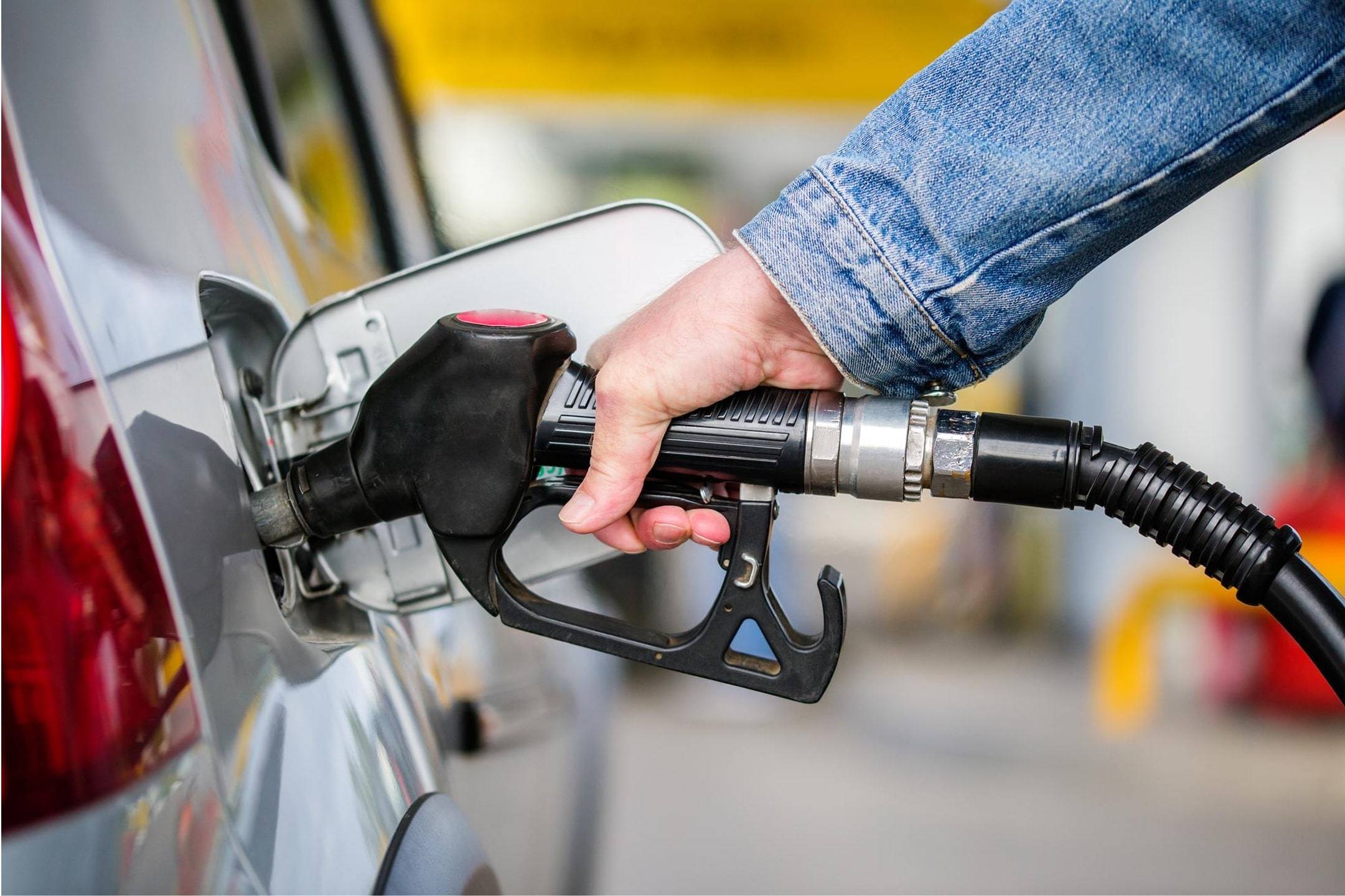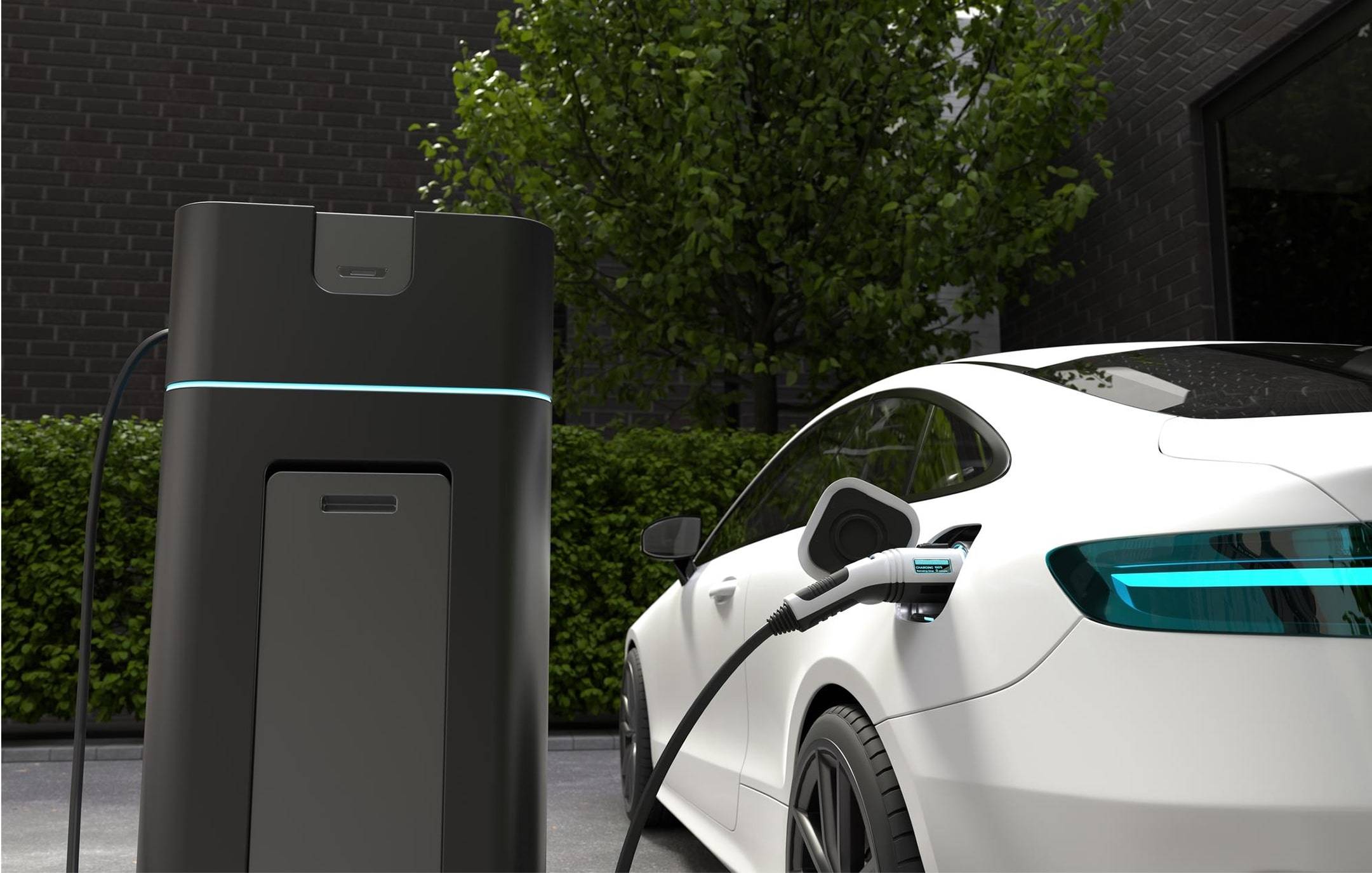Should You Sell a Diesel Car? Best Guide for 2025
If you're sitting on an old diesel car, you're probably curious about how things will play out over the next few years. With the impending changes to emissions legislation coming into play, there's a lot of uncertainty surrounding the future of diesel cars in the UK.
Last updated: 19th November, 2025

Award-winning CEO driving growth and social impact across automotive, recycling, and technology-led enterprise platforms.

Listen to this story
When it comes to diesel engines, we certainly aren't where we were in the 1980s. Nevertheless, advancements in electric vehicles have shifted public interest (and government regulations) away from diesel cars.
Severe health implications from CO2 emissions, higher costs associated with maintenance and upkeep, and government incentives to get rid of diesel have all put diesel engines on the chopping block for UK citizens.
With so much uncertainty about what will happen to diesel cars in 2025, it's important to consider all your options before making a decision.
What's in this article
- 1. The Future of Diesel Cars: A Quick Look
- 2. Is it a good idea to sell your diesel car?
- 3. Reasons to sell your diesel car
- 3.1 Environmental impact
- 3.2 Health concerns
- 3.3 Emissions regulations
- 3.4 Diesel vehicle bans in certain areas
- 3.5 Fuel efficiency
- 3.6 Rising maintenance costs
- 3.7 Limited availability of diesel fuel
- 3.8 Resale value decline
- 3.9 Noise and vibration issues
- 3.10 Incentives and subsidies for getting rid of diesel cars
- 3.11 Tax and insurance differences
- 3.12 Public perception of diesel cars
- 3.13 When should I sell my diesel car?
The Future of Diesel Cars: A Quick Look
The truth is, no one can predict what will happen with absolute certainty. What we do know is this:
- The UK government announced in 2020 they would ban the sale of all new diesel and petrol engines in an effort to phase out emissions. This means that by 2033, all vehicles in the UK will be electric.
- In 2023, the government vowed to stick to this plan and they’ve only ramped up plans since then.
- Diesel cars are becoming more expensive to maintain and repair due to their higher emissions levels. Nowadays, buying a diesel car is generally considered a less economical choice than an electric one.
- Government incentives like the ULEZ scrappage scheme and grants for electric cars have made it easier and more affordable for UK citizens to switch to EVs.
- The current trend of public opinion on diesel cars is slowly shifting away from favouring them as a reliable source of transportation.
So, to put it bluntly: the future is bleak for diesel cars. In the UK, at least.
Is it a good idea to sell your diesel car?
The short answer is yes. We're about as well-versed as it gets in auto market dynamics in the UK. And we can tell you with certainty that one day (very soon) you're going to have to part ways with your diesel car.
The longer answer is that it really depends on your circumstances. Consider things like:
- How much do you value having the money from a sale now versus later?
- Is there value in keeping the car around for a few more years?
- Are there any government incentives or scrappage schemes available that can help you get a better price for your car?
What the experts say

Anthony Sharkey
Reasons to sell your diesel car
At the end of the day, it's up to you to make the decision. But if you're looking to sell in 2025, read on to see why we feel the way we do.
Environmental impact
Diesel cars emit fewer hydrocarbons and less carbon monoxide than their petrol counterparts. Plus, they are lesser contributors to lead pollution. But they are in no way "clean".
Compared to petrol cars and EVs, diesel cars emit considerably more nitrogen oxides (NOx) and particulate matter (PM). NOx and PM can both have a serious impact on air quality, causing environmental issues like:
- Human health risks — High levels of NOx can cause harm to the respiratory system, leading to diseases such as asthma, bronchitis, and other chronic obstructive pulmonary diseases.
- Eutrophication — Nitrogen compounds from diesel emissions can lead to an excessive growth of algae in water bodies, a phenomenon known as eutrophication. This can severely disrupt aquatic ecosystems, deplete oxygen levels, and harm or kill aquatic life.
- Contribution to climate change — Although diesel cars emit less CO2 than petrol cars, they still contribute to global warming. Moreover, 'black carbon' or soot emitted from diesel engines is among the most potent climate change pollutants.
- Depletion of natural resources — Diesel, being a fossil fuel, is derived from crude oil, a non-renewable resource. The extraction, refining, and use of diesel contribute to the depletion of these precious resources.
- Acid rain — Nitrogen oxides and sulfur dioxide diesel engines emissions react with water vapor in the atmosphere to form acids. When these acidic compounds fall on land or water bodies, the acid concentrated in rain drops damages infrastructure and surrounding ecosystems.
- Ugly smog and reduced visibility — A big, brown smog cloud (often accompanied by a distinct smell) is downright ugly. And what good is it to look at the beautiful architecture of the London skyline if you can't see that far?
It's worth noting that in addition to the environmental costs of running a diesel engine, the impact doesn't stop when you sell your non-running car to a scrap yard. Plastics, toxic metals and other hazardous materials form part of a diesel car's parts. From production through disposal and recycling, these materials leach into the environment and cause lasting environmental damage.

Health concerns
With high levels of PM and NOx in the air we breathe, there are several directly-related health concerns (especially for those with preexisting conditions):
- Negative effects on the eyes, nose and throat
- Coughing, wheezing and shortness of breath
- Asthma, bronchitis and other respiratory ailments
- Heart attack and cardiovascular problems
- Stroke
- Several types of cancers
The UK government estimates anywhere from 28,000 to 36,000 deaths occur each year due to human-made air pollution. Between 2017 and 2025, they estimate the total cost of air pollutants (specifically listed: PM and NOx) to the social care system and NHS to be roughly £1.6 billion.
Emissions regulations
In direct response to the negative environmental and health impacts of diesel cars, many countries have enacted strict emissions regulations. In the UK, new diesel cars have to meet stringent Euro 6 standards to be sold.
Local regulations, such as Low Emissions Zones (LEZ) and Clean Air Zones (CAZ), are being established in cities throughout the country to improve air quality. In cities like Aberdeen, Bristol, Edinburgh, Glasgow, and London, the government now imposes fines on any non compliant diesel vehicle driving through these areas.
In London, specifically, Ultra-Low Emissions Zones (ULEZ) was introduced in April 2019. If you own a diesel car that struggles to meet Euro 6 standards, driving around London could become very expensive for you.

Diesel vehicle bans in certain areas
Newer diesel engines are surprisingly clean (despite their PM and NOx emissions). Older, dirtier engines are already being regulated against in cities like London (due to the ULEZ).
Up until recently, no city has outright banned diesel cars from entering the city. That changed when Bristol became the first UK city to take that step. In the city, the central ban zone encompasses sections of the M32, old city, Harbourside and Redcliffe.
Other cities implementing bans on certain diesel cars include:
- Aberdeen
- Birmingham
- Edinburgh
- Glasgow
- Leeds
- Oxford
Most of these bans affect diesel cars, vans and buses that are either older than 2015 or fail to meet the Euro 6 emissions standards. And it's worth noting that many times, they only apply to the city centre or certain roads.
Given the sheer number of calls from local governments across the UK, phasing out diesel cars in other cities isn't far-fetched by any means.
Fuel efficiency
Compared to petrol cars, diesel cars take the trophy here. They're typically much more fuel efficient than petrol. The reason for this is that diesel engines compress the fuel-air mixture more efficiently than petrol cars, which leads to a bigger bang and more power.
Take the 2025 BMW 520i petrol model compared to its diesel counterpart (520d) as an example. According to BMW, the petrol 520i gets ~49 mpg on the official WLTP figures, while the diesel 520d yields an impressive 55.4 mpg combined fuel economy.
But fuel efficiency isn't a concern at all for electric vehicles. After all, they don't use gasoline or diesel in the first place. In addition to being much better for the environment (zero emissions!), they're also cheaper to operate in terms of fuel costs over time.
Rising maintenance costs
There are fewer moving parts in an EV than a diesel or petrol engine, which means fewer costs for maintenance. EVs don't even require oil changes! According to research, maintaining an EV on an annual basis is around 23% cheaper than a petrol car.
Diesel cars also require frequent maintenance to keep them running smoothly - and that doesn't come cheap. Over time, parts like fuel injectors or turbochargers can wear down or need replacing due to rust and soil build-up in the fuel tanks.
You can expect to pay more for routine services in the future as the cost of parts continues to rise due to inflated demand and limited availability. It's also worth noting that as diesel technology becomes outdated, qualified mechanics will become less common, making it harder to find an experienced technician at a reasonable price.
Limited availability of diesel fuel
In February 2023, fuel prices rose dramatically following the Kremlin's invasion of Ukraine. Russia is the world's largest oil exporter and supplies nearly a quarter of all diesel fuel to the world market.
Yes, prices have stabilised since then — diesel prices dropped 8.4 pence per litre from end of February to end of May 2025, and were already on a downward trend before. But the point is that you’re still at the mercy of the variable price price of oil, which is all but guaranteed to fluctuate upward again at some point in the future.

Resale value decline
Although it seems counterintuitive for an article about whether or not to sell a diesel car in 2025, resale value is another factor worth considering.
Even if you do decide to keep your diesel car in 2025 and beyond, the future of its resale value looks grim. Stricter government regulations and emissions standards are being enacted all the time. And fewer people will want to invest in a vehicle that's becoming increasingly obsolete.
Want to get an old diesel car off your hands? Scrap your car with us. We’ll quote you instantly, pick it up for free and pay you out for the whole value of its resellable parts, not just scrap metal weight. Because of that, we give better offers than any other scrap buyer out there.
Noise and vibration issues
A common complaint with diesel and petrol vehicles is their excessive noise and vibration levels. Particularly with older models, these vehicles can be very loud — something that many owners don't appreciate.
On the other hand, modern EVs are exceptionally quiet - so much so that many countries have enacted minimum noise regulations for EVs as a safety measure. This makes them a much more pleasant choice if you're looking for an overall quieter, more comfortable drive.
Advancements in electric vehicles
Perhaps the most significant drawback to EVs is the fact you're tethered to a charging station, much like being chained to the wall. With petrol and diesel cars, you have the flexibility of refuelling at any gas station or corner store.
In the past, this was precisely why they were reserved for those who could install massive batteries in their houses and pay expensive electric bills. But more and more cities are investing in public charging infrastructure, which makes EVs more accessible to everyone.
And with new battery technology being developed every day, you can expect to see range anxiety become less of an issue as time goes on. Thus far, Tesla has installed more than 1,000 high-speed superchargers that charge EVs from 0% to 80% in around ten minutes.

Incentives and subsidies for getting rid of diesel cars
For the last several years, the British government has offered incentives to drivers who are willing to trade in their diesel cars for more fuel-efficient models. These subsidies are paired with discounts on electric vehicles and hybrids to make them even more attractive.
A relevant example that applies to all car types, including diesel, is the (now-closed) ULEZ scrappage scheme, which covered the City of London, all 32 boroughs and the majority of Greater London.
If you sold your van, car or motorcycle to a registered scrap dealer, you would have potentially qualified for a £2,000 grant (£1,000 for motorcycles). Qualification hinged on whether or not a Londoner claims government benefits (e.g., child tax credit, disability), which makes ULEZ-compliant cars (like EVs) even more affordable for those who might otherwise struggle.
Tax and insurance differences
Since diesel cars cost more to buy and maintain, they also pose a higher insurance liability in the event of damage, theft or an accident. A lot of the newer diesel cars also have advanced filters and emission-busting systems, which can make them much more expensive to fix compared to petrol.
That means they're likely to cost more in terms of taxes and annual premiums, too. Insurance companies are, technically, taking a bigger risk when they insure expensive cars.
Of course, the flip side to this is diesel cars perform better than many of their petrol counterparts. And high-end ones can often outpace the more advanced EVs on the market, depending on the make and model.
Taxes are another issue. According to the most recent figures from the DVLA, diesel car owners pay up to £2,605 in road tax each year (though it is unlikely your car emits more than 255g/km of CO2).
One of the best reasons to switch to an electric vehicle is road tax exemption. Though you'll still have to tax your EV, you won't have to pay since your car would have zero emissions.
Public perception of diesel cars
Plenty of people still drive diesel cars, but public perception is slowly starting to shift. As more and more UK residents concern themselves with the air quality in their city and the future of the global climate, diesel cars are becoming increasingly unfashionable.
According to data from Zap-Map, as of end of July 2025, the UK had 2,497,776 plug‑in cars, of which over 1,615,000 were fully battery-electric vehicles (BEVs) and over 882,000 were plug-in hybrids (PHEVs).
The availability of publicly charged EV infrastructure is growing dramatically. Earlier in Q1 2025, Zap‑Map reported 76,840 total charge points, marking a 29% year-on-year increase.
Alongside that increase, so too is the idea that EVs are a preferable alternative to diesel cars. And the proof is in the pudding: more people are making the switch.
When should I sell my diesel car?
When exactly you should sell your diesel car depends on a number of factors.
- How old is it? If your vehicle is older than 16 years, it probably doesn't comply with modern emissions standards. In some areas of the country, that renders it useless.
- How long have you had your current vehicle? If you've just bought a new car (in the last year or so), you still have time. You're better off keeping it for a few years than selling your car on finance so early.
- How much can you invest in a new car? You may want to replace your car. But even with grants and sales processes, a new car is expensive.
- Is there ample charging infrastructure near you? Knowing charging stations are nearby can make switching to an electric car worthwhile. But someone living in the outskirts of town might have a harder time charging it.
It may be more worth waiting for a few years until you've saved up enough money to buy the type of car that fits your needs. But, if you're already saving and thinking of buying a new car, there's no better time than now!
So, will diesel cars be banned in the UK?
Although new diesel cars will be banned from being sold in 2030, there hasn't been a government initiative across the UK to ban existing diesel cars. That being said, each city has the right to enact its specific regulations (and they have).
In many cities, if your vehicle doesn't meet stringent emissions standards, you can't even drive through your beloved city centre. Plenty of newer diesel vehicles are quite clean, but older models will put you at risk of hefty fines or outright bans — if they haven't already, that is.
Wrapping up
If you're thinking of switching away from diesel, the best time was yesterday. The second best time is now.
Of course, there are reasons you may not be able to (or want to). But there are plenty of ways to get rid of it when you're ready.
You could:
- Sell it online to a car buying service
- Trade it in to a dealership for something more fuel-efficient
- Take part in government scrappage schemes
- Part it out (if you're selling a salvage car)
- Sell your car privately (but make sure you know all the legalities)
The point is, you have plenty of options. But let us remind you: if you want to get the best rate, the clock is most certainly ticking.
Frequently asked questions
The actual market value of your car varies wildly depending on whether you're selling a damaged car or a car in perfect condition (among dozens of other factors).
That said, the simplest way to determine the current market value of your diesel car is by using our online valuation service. It's free, and just takes a few clicks!
Electric vehicles are increasing in demand, so they tend to hold their value better than most other cars. While diesel engines have higher resale value than their petrol counterparts, they're still typically lower than the resale value of EVs.
Diesel engines have a higher resale value than gas engines. They maintain their performance over a much longer period. Diesel cars in general usually hold their value better than petrol cars, so they are usually considered a better investment.
A diesel car is worth it over a petrol car if you value performance and fuel economy over cost. Diesel engines tend to be more powerful than their petrol counterparts and require less fuel for the same distance travelled. However, they tend to be more expensive and a little noisier than a petrol car.
The main drawback to selling a diesel car is the current public perception. Though many people still buy and drive them, more and more people are shifting towards electric vehicles out of environmental concerns. That can limit your potential buyers — even if you're offering it at a good price.
If you live in a big city with charging infrastructure, it's usually better to invest in an electric vehicle. Buying a second-hand car with a diesel engine in 2025 means you'll have to switch to an EV in the future, anyways.
It depends. As we mentioned before, the public perception of diesel cars has been waning over the years. That means you might have to spend more time looking for a buyer or lower your asking price to attract potential buyers. However, if you're selling it at a good price and in decent condition, there's no reason you shouldn't be able to find a buyer.
The government in the UK has implemented several incentives and grants to make buying an electric car easier. Unfortunately, there aren't any similar programs for those looking to sell their diesel car. That being said, many local governments have instituted scrappage schemes where you can trade in your old vehicle for a rebate on a new one.
When preparing your car for sale, the most important things you can do beforehand to maximise your sale price are clean it inside and out, get it detailed, have a professional mechanic check for (and fix) any issues and get your V5C/MOT certificate/service history in order.
Most diesel cars after 2006 are ULEZ compliant. The main risk for ULEZ non-compliance lies with older diesel cars that can't meet the emissions standards for urban areas. To confirm whether or not your car is compliant, you can visit the Transportation for London (TfL) website here.
About Car.co.uk

Share on
Latest news & blogs










